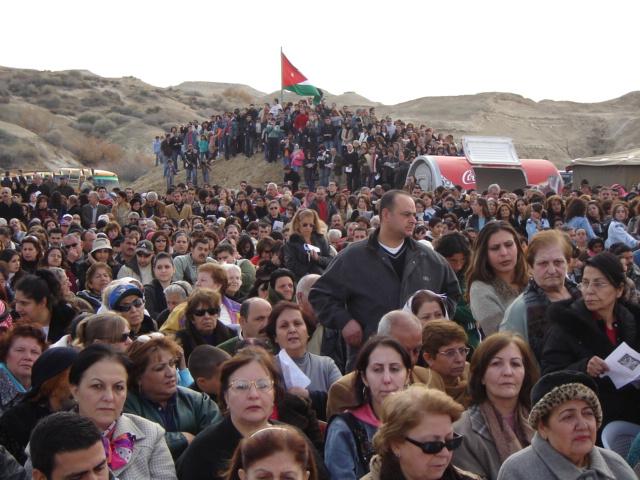Iraqi immigrants struggling to make lives in the United States
Iraqi immigrants in Jordan, pictured, are trying to rebuild their lives, while Iraqi immigrants in the United States are running into problems of their own. Both groups fled the Iraq War. (Photo by Tasher Bahoo, via Wikimedia Commons.)
Story from The Takeaway. Listen to the above audio for a complete report.
As the Iraq War winds down, the Iraqi immigrant population is trying to get itself back on its feet.
About 1/6th of the Iraqi population fled the country in the months and years after the U.S.-led invasion of the country, and about 60,000 of them resettled in the United States. Of those 60,000, about a quarter have settled in one city: San Diego. Specifically, most of them have made their way to the suburb of El Cajon, where they’ve united with an older Iraqi population that moved her during earlier years of the Saddam Hussein regime and during the first Gulf War.
Now, despite extensive experience, they’re struggling to find jobs and earn a living in this country.
Jill Replogle, is a reporter for Fronteras Desk(http://www.fronterasdesk.org/). She’s been covering the lives of many Iraqi refugees, including professionals trying to find a job and families waiting for relatives to arrive from Syria.
“There are a lot of refugee resettlement agencies in San Diego and they really do their best to make everyone feel welcome,” Repologle said.
But, in these times of tight budgets, hospitals and schools are feeling the pinch.
“There are really feeling overwhelmed by the thousands of people who have come in just the last few years,” Replogle said.
And there are other problems. There’s generally a shortage of English as a Second Language classes. There’s also the problem of transportation.
Southern California isn’t known for its public transportation, and that’s meant finding work can be tough — even for those who can speak the language.
“When you come here, you have to buy a car, because you can’t find a job if you don’t have a car,” said Iraqi immigrant Salil Habib, who does speak English. “At the same time, you can’t buy a car if you don’t have a job.”
But there’s another issue as well — one many Americans are facing as well. He said part of his challenge is probably his age.
Habib is in his 50s, has extensive experience and has applied for more than 100 jobs in the years he’s been in the United States. And yet, he has had just a handful of interviews and still no job offers.
———————————————–
“The Takeaway” is a national morning news program, delivering the news and analysis you need to catch up, start your day, and prepare for what’s ahead. The show is a co-production of WNYC and PRI, in editorial collaboration with the BBC, The New York Times Radio, and WGBH.
